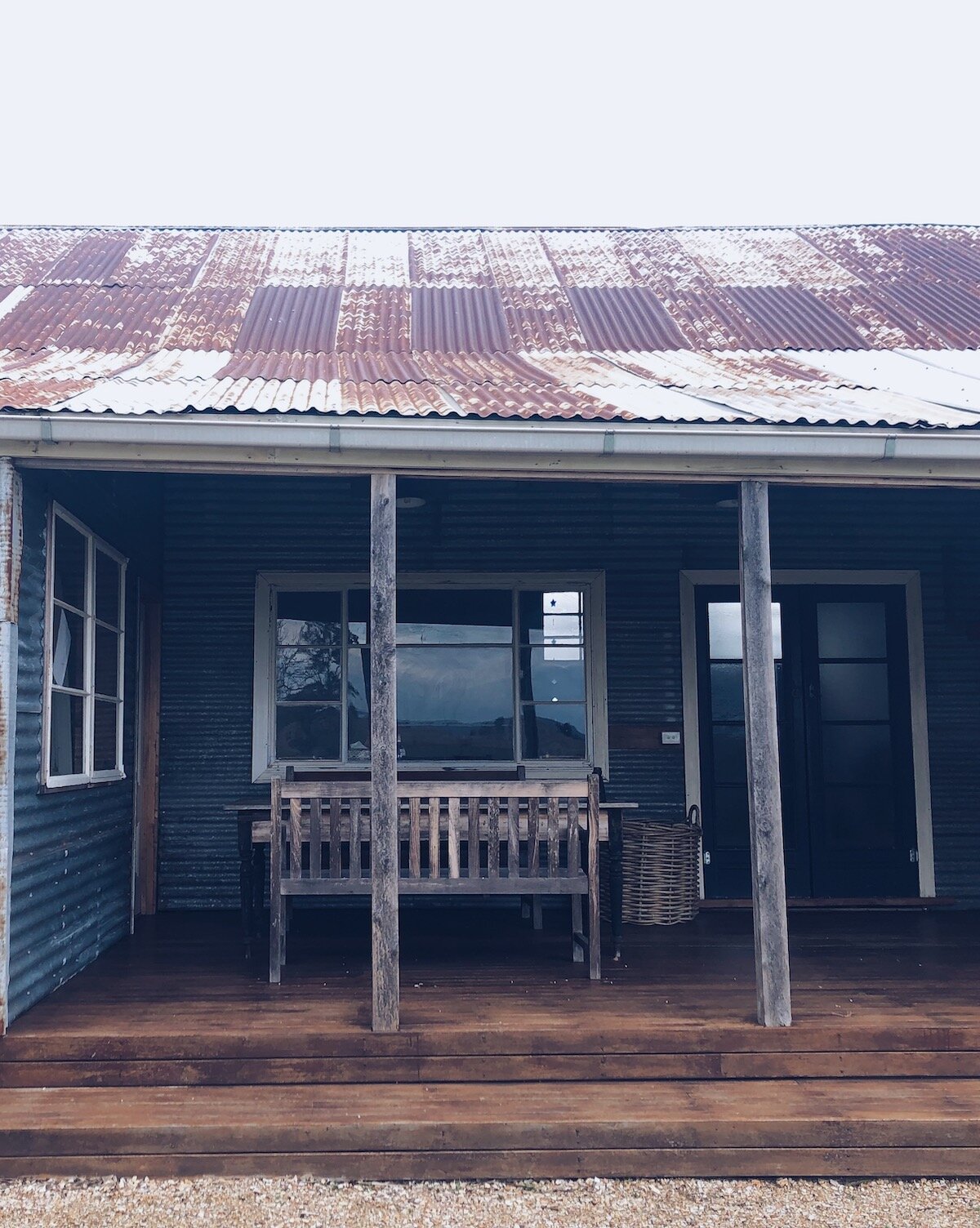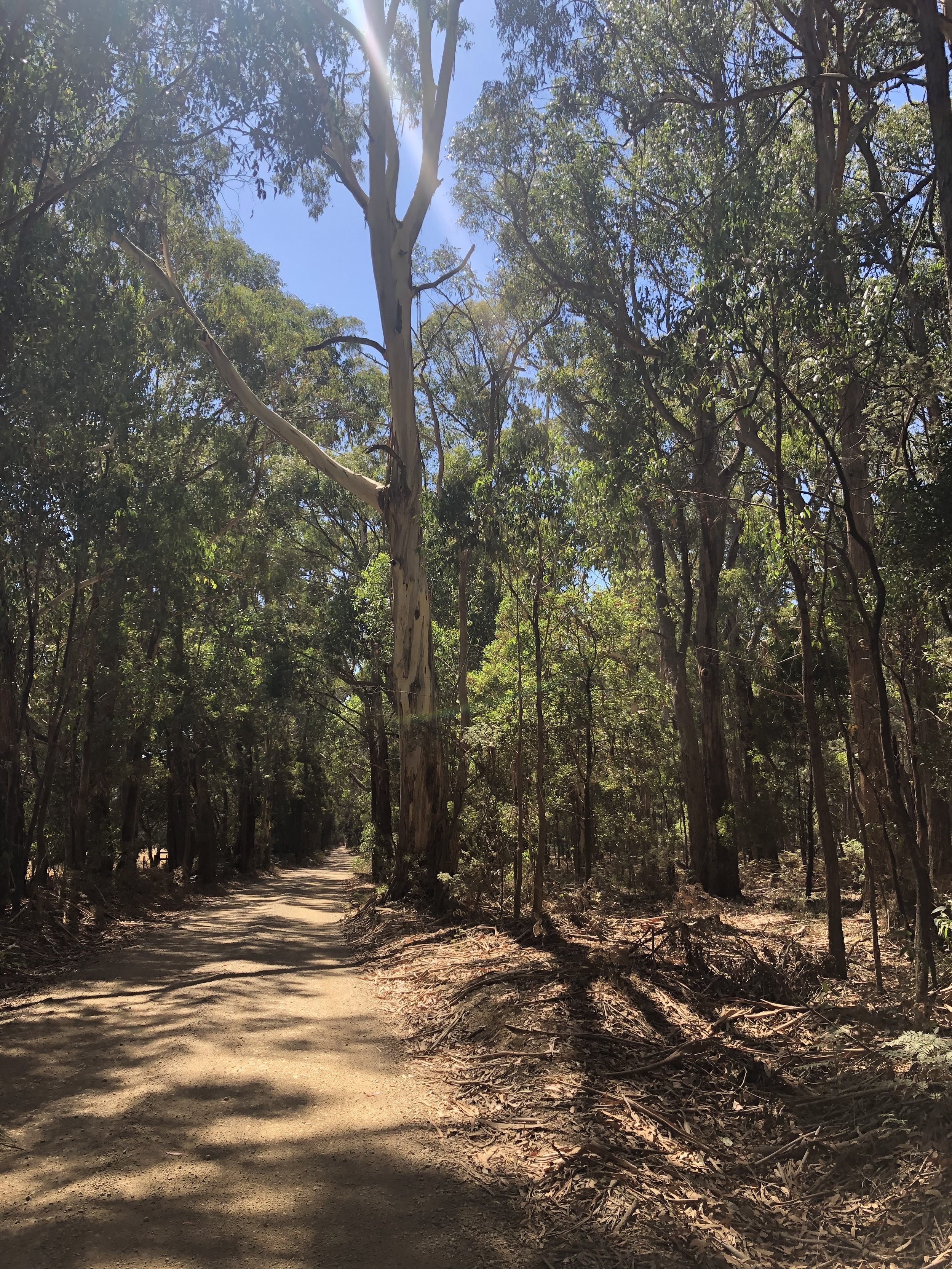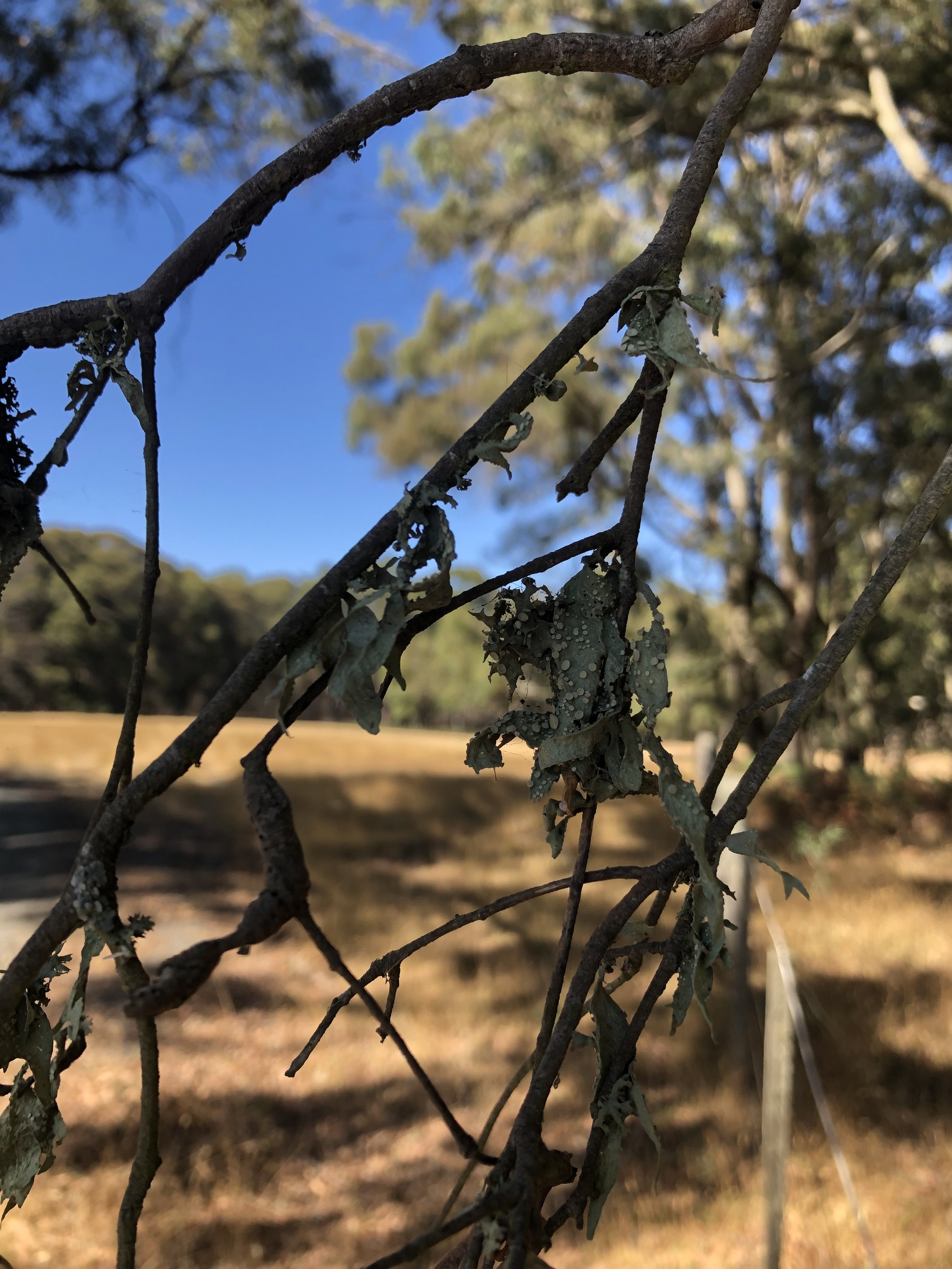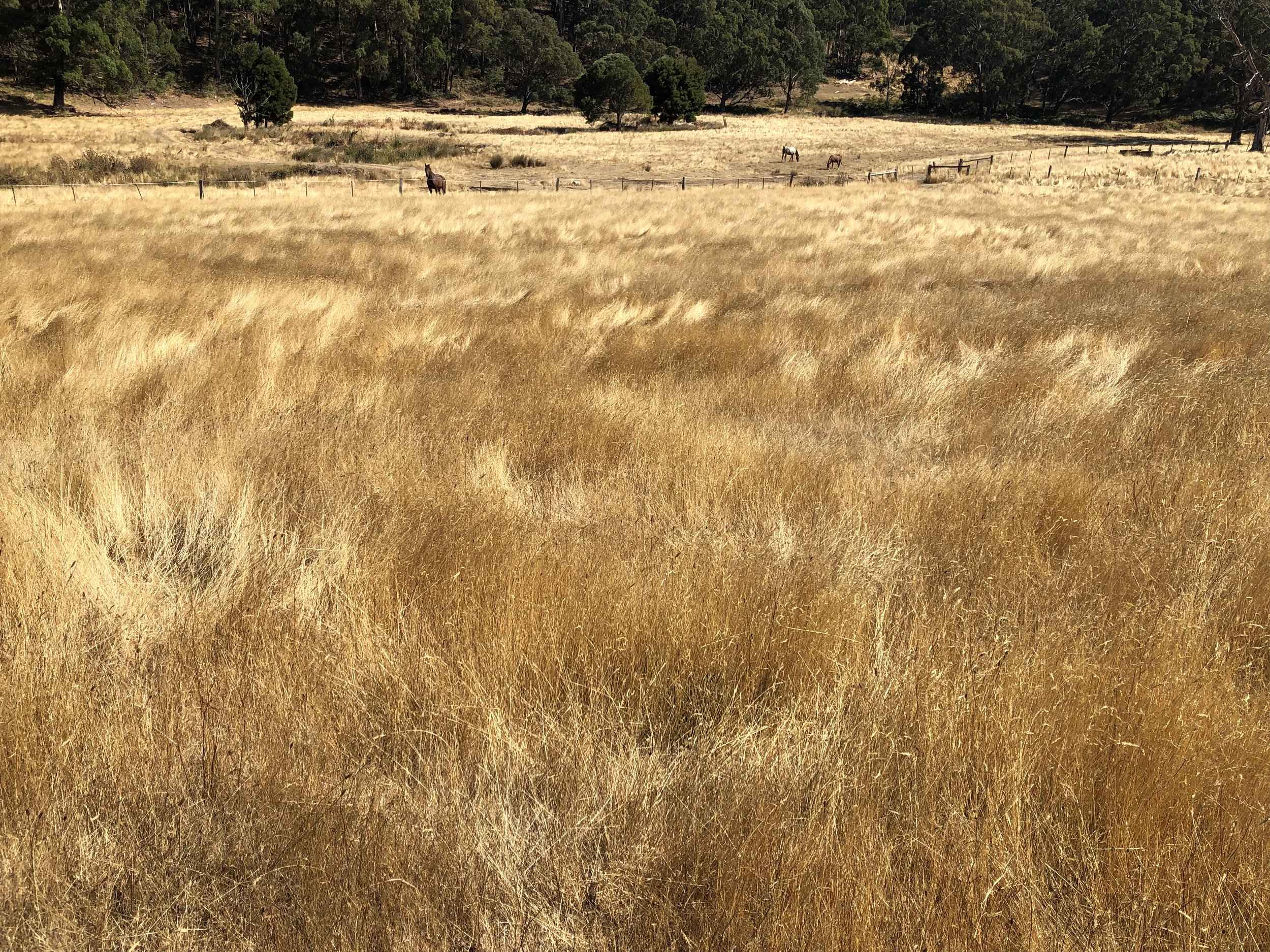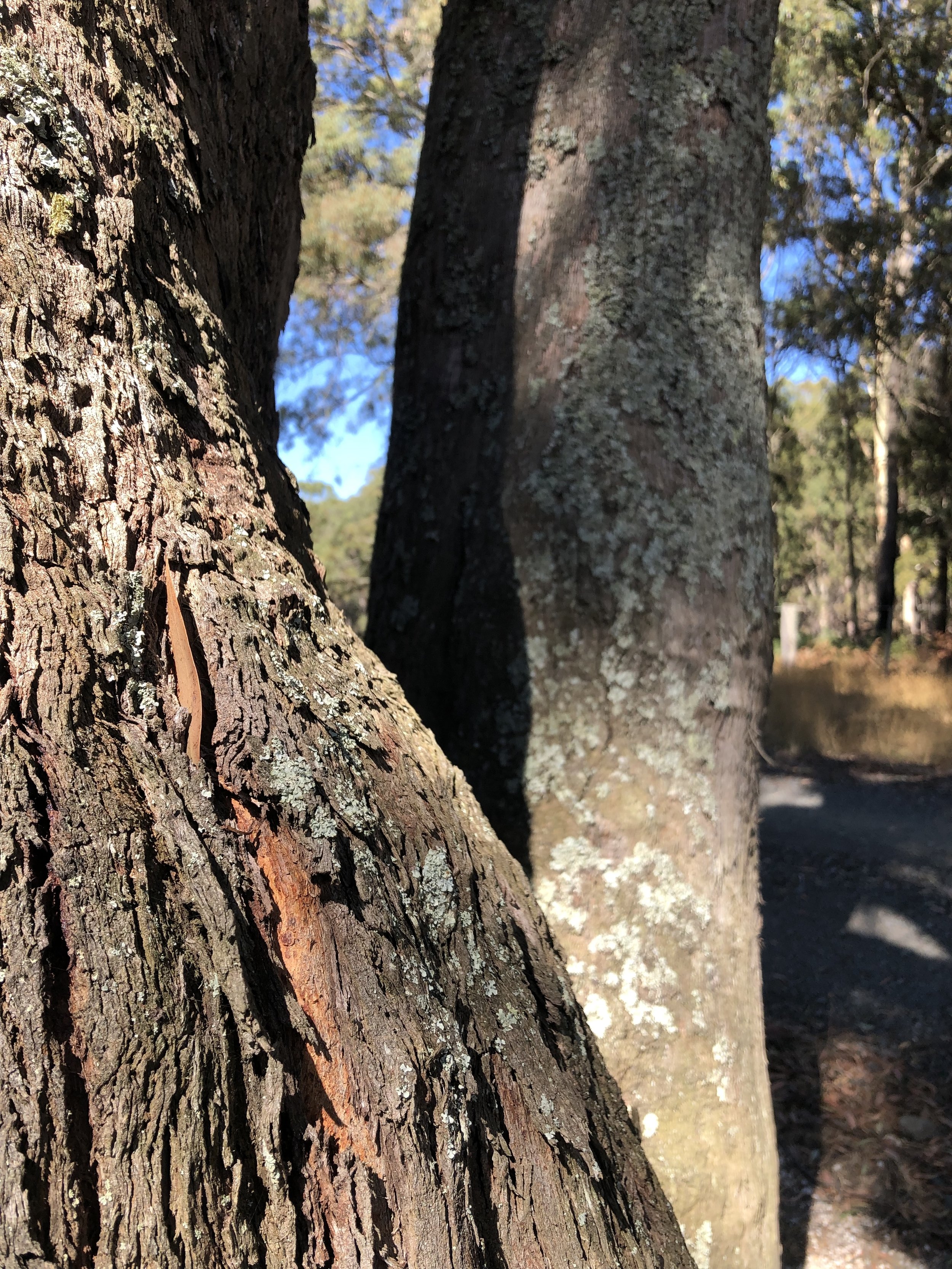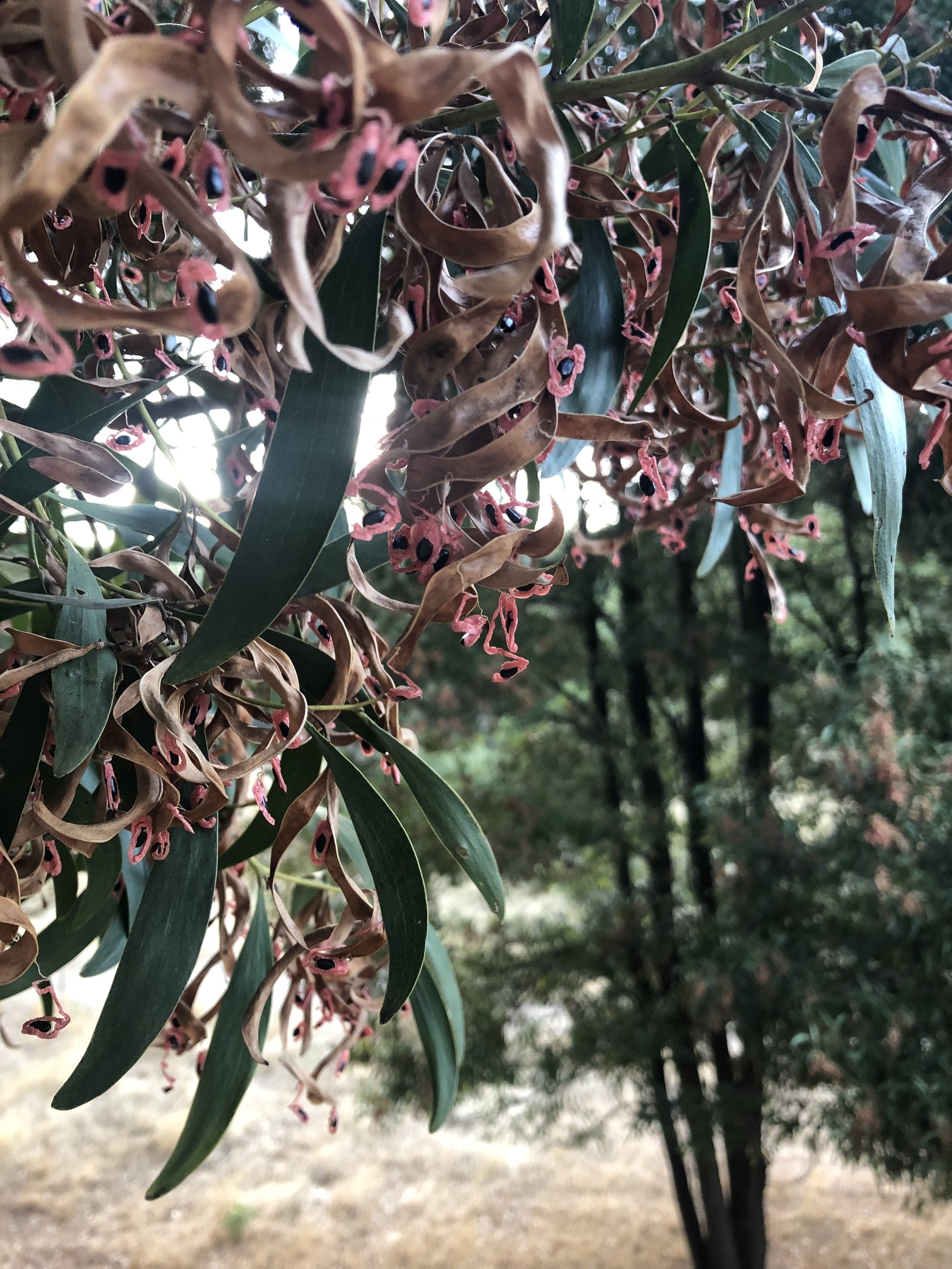
JOURNAL
documenting
&
discovering joyful things
Slow mornings
Slow mornings are for waking up to birdsong and not getting out of bed straight away. Of lying still and listening to the chorus.
It starts with one plaintive call, a single note. A moment of silence, then an answer. Now a handful (or feather-full) of small trills, like a vocal warm-up, make gentle music for the dawn.
And then at the wave of an unseen conductor, the entire ensemble bursts into song, a thousand avian voices turning the valley into a kind of amphitheatre of chirps and dings and trills and gurgles and caws and tweets and shrieks and twitters and songs, mostly songs, that celebrate the dawn.
It is impossible to sleep, but on slow mornings, there’s no need to leap out of bed. Slow mornings are permission to stretch first, twist, yawn, and when you’re ready - only when you’re ready - soft-foot into the kitchen to fill a kettle and boil some water.
Slow mornings begin with steaming cups of tea cradled on laps, in old comfy chairs under light-filled windows, where an entire chapter of a favourite book is read at leisure.
We have rented a little two-bedroom cottage on the edge of a walnut farm and when I make my way into the kitchen, the ghost of last night’s fire haunts the air like a toasty hug.
Ralph hears me and ambles over for a cuddle, his eyes still puffy with sleep and wild curls shooting in every direction. We don shoes and coats over our pyjamas and sneak out for a pre-breakfast walk, just the two of us.
The path at the front of the cottage is thick with onion weeds in bloom (which looks a lot better than that sounds), and we tip-toe through starlike flowers in the dew to the tree lined edge of a dried up creek-bed. Follow that to the edge of the orchard, where I carry Ralph over the cattle-grid, balancing precariously with each step, and set him down among row upon row of walnut trees, just beginning to bud.
Cold air, birdsong, a little hand in mine. In the distance, the Victorian Alps, forest green since the snow melted a month ago.
We walk in silence for a little while, if the ever-enthusiastic chorus of a thousand birds can be considered silence, before Ralph wakes up enough to start telling me stories. Once he does though, then stories don’t stop. Long, convoluted, nonsensical stories about games concocted in the playground involving superheroes and villains and clever inventions and magical powers.
Then he breaks off mid-sentence, and we freeze where we stand. Ahead on the path, a glorious, red-gold fox pauses and stares back at us. Time is suspended: the fox, Ralph and me floating like motes in our own little time-bubble made of golden morning light.
Until somewhere in the distance a cow bellows, and the spell is broken. Released, the fox turns and disappears among the walnut trees but before we can move, another crosses our path at the same place, pauses to watch us, then runs after its mate.
Ralph skips ahead, collecting walnut buds, river pebbles and wildflowers, until he notices something in the grass and calls back at me. “I think I found where the fox sleeps!”
I catch up, and he points to a big, round patch of flattened grass. Bed for a cow, not a fox. There are flattened grass-patches all around us, and a hefty sprinkling of still-steaming cow-pats on the path.
We tread more carefully now, not wanting to step in what the herd left behind, and Ralph invents a new game: “Pat-Man.” We hop sideways and forwards but never diagonally, saying “bleep! bleep!” Walnut flowers are power-ups (without them, we slow down or stop) and the ultimate goal is to reach the next cattle-grid and find our way to the river.
We win. The river is deep and green and still, made for picnics.
On the way back, we finally find the herd. Fat, peaceful cows, grazing under the trees. When they spot us the mothers call anxiously for their babies, who skip over to them, and the whole herd ambles away into the shadows.
It’s a slow, gentle amble, not a race to escape. Cows like slow mornings too.
(There’s a little video below so you can join us among the walnut trees. If you can’t see it, click on the title of this blog post to view it in your browser, and the video will come up).
Our different dreams
A week or two ago we briefly indulged the dream of buying this old house and moving to the country. It was nestled amid an ancient orchard, the ground covered in daffodils, snowflakes, jonquils and anemones that had been allowed to grow and spread for more than a hundred years.
Also on the property was a 160-year-old cottage with a thatched roof where I imagined my parents living, and an old farm shed that had been converted into a yoga studio, that was just begging to be turned into a place to host creative workshops and classes for likeminded souls.
There were 150 acres to play with, as well as a bore with water that was so fresh it was sweet to drink, and in my dream I was already sowing seeds and planting trees to bring back diversity to the soil and draw down carbon. I was purchasing truffle-inoculated oak trees; and Cream Legbar hens for blue eggs and Plymouth Rock hens for brown eggs; and a little herd of Anglo Nubian goats for making chèvre.
My imagined life on the land was magical.
It’s funny how the same dream can look so completely different, depending on who is doing the dreaming.
As I wandered through this old house, I could feel it calling out for someone to love it. For a gentle hand that would remove the birds’ nests from the ceiling and restore the rusted old Aga stove to working order in time for cold wintery days, and tend to the fruit trees and roses and orchard like Mary and Dickon in the Secret Garden.
“Me!” I all-but shouted, waving my hand in the air. “I’ll do it!”
I pictured dances in the old shearing shed, and long lunches under the grape vines outside. A gigantic kitchen garden and a medicinal herb garden next door. The children racing over to Nanna’s and Pa’s house after school every afternoon. Horses. A puppy.
But where I saw potential, my husband saw a money pit. Endless weeks and months, probably years, of spending our every spare minute and every spare cent on bringing this old farmhouse back to life.
Our weekends would be tied to this land; we could probably never afford to go on a holiday again; our choices of schools for the children would be curtailed; and he’d have to drive more than an hour each way to get to work.
My dream was cosy, botanical and gentle; Mr B’s was exhausting, expensive and stressful. I suspect the reality would have been somewhere in the middle.
Would the dream have been worth the sacrifice?
We see the world very differently, he and I. Sometimes, this fosters disagreements but mostly, we complement one another. He helps me to be practical, and I remind him that sometimes, it is fun to let yourself dream.
In which the author goes to a country wedding, steps in a puddle, and gets philosophical about the passing of time and a misshapen moon
We were at a country wedding on the weekend. It was a perfect, clear and crisp winter’s day and the couple were married in a short ceremony under a simple canopy in the watery sunshine. Afterwards we moved inside to an old farm building with wonky, handmade bricks paving the entry-floor, wreaths of greenery and fairly lights wound around the exposed beams, and a huge, roaring fire in one corner to which we all instantly flocked, hands out.
It wasn’t a big wedding. Most of the people there were family or life-long friends, so there was an easy, informal camaraderie to the room. No set places or awkward conversations with strangers at the table.
At the back of an old wooden stage, a DJ played the kinds of tracks you hear at every wedding, everywhere, and the children, an assorted gaggle of cousins ranging age from five to fifteen, busted their best moves. My two, as the youngest of the group, were often the ringleaders, dragging their older cousins back to the dance floor whenever they showed signs of waning. Later, after the bridal waltz, the grown-ups joined in too, couples dissolving into laughing groups with children riding on shoulders, as we all stumbled through the half-forgotten moves to Nutbush City Limits, YMCA, and the dreaded Macarena. Actually I think they played that one twice.
As the afternoon lengthened and the night grew dark around us, our little party carried on, a bright oasis of laughter and music, shining out from the middle of the otherwise empty fields.
One of the uncles was the first to fold, slumping in his chair beside the table, chin on chest. People posed behind him, bunny-ear fingers hovering over his head, but he gently snored, oblivious. Next to go was Ralph. I sat him beside a table to adjust his shoelaces for half a minute, and in that time he simply lay down, put his thumb in his mouth, and closed his eyes.
Then he opened them again and said, “Mummy, I’m too hot.” I carried him out to the entrance room, stepping carefully in my heels over the wonky, ancient brick floor, and eased the two of us down into an armchair. It was much cooler out there but I put a coat over Ralph and watched the party through the swinging glass doors, as he fell almost instantly asleep.
People came and went, pausing to smile or kiss his dark curls, but mostly it was just Ralph and me, his soft breathing, his sleeping body keeping me warm. I soaked it all in, painfully aware that this time for us, him sleeping in my arms, was not a forever thing.
Recently my friend Sally shared online about the joys of being a parent to her two grown-up girls. She talked about how there is a lot of airspace and celebration given to the precious moments we share with our small children, but less about the changed although still beautiful relationship that comes when they are adults. I was glad she shared these stories - I’m always glad when I hear stories about parents with older children - because I know that my own “precious moments” with my little ones are limited. “Our children are only on loan,” Sally’s mother told her, and she told me, and I wonder if my own compulsion to share these moments with you is because I am trying, through my words, to freeze them in time. As if by writing them down I am forced to be more mindful of them, to appreciate them, before they are gone forever.
Inside the function room, the DJ began playing Walk the Dinosaur. I couldn’t see the stage from my little armchair but from what I could hear, every guest at the wedding aside from me, Ralph and the sleeping cousin was up on the stage, dancing and singing along. And not one of them could hold a tune.
When it was time to leave, my husband gathered up coats, bags and our daughter, and I eased myself clumsily out of that chair, still holding the leaden weight of my not-so-little boy, and clutching a coat over his back to keep him warm as we ventured into the winter night air. I made slow progress back to the car, trying to pick out footsteps in the broken and bumpy unlit path, wearing heels, and carrying a heavy, sleeping child.
Once off the path there was no light at all aside from the stars and we got lost, turning first one way and walking a hundred yards or so before realising our mistake and turning in the other direction, then finally inching our way down over a ditch and into a paddock, to where the parked car gleamed dully in the distance. I shifted Ralph’s weight in my arms, clasping a wrist in each hand to stop him from slipping… and then with a yell I didn’t realise had left my lips until I heard it, stepped into a puddle of mud half-way up to my knees.
Ralph woke to my yell, and we stood there precariously, me holding still him up but unable to get out of the puddle, since my shoes were sunk so deep in mud that they stayed behind whenever I tried to lift my feet out. When my husband came to rescue us, I needed to hold onto his shoulders with both my hands to leverage myself (and my shoes) out of that puddle.
Back on dry land, I poured mud and water out of my shoes as though they were goblets, and hobbled in my swampy, stocking-feet over to the car. The children woke themselves up just enough to find the whole scenario extremely amusing, except that from time to time Ralph would pause the laughter and remember his part in the episode, saying, “Mum, you could have dropped me!” in shocked and accusatory tones.
The moon rose on our drive home. Both children slept in the back seats, and Mr B and I kept up a quiet conversation with one another, more to help him stay awake as he drove, than because either of us had anything particularly important to say. While we chatted, the moon came up big and yellow, a lumpy kind of almost-full-but-not-quite moon. A floating quince in the sky. I watched it as we sped past shadowy trees and black hills that rose and fell beside the road, my mind drifting away from my wet feet and back to the upholstered armchair where Ralph had slept so angelically in my arms, until the city lights ahead stole the moon’s glamour and signalled that we were almost home.
I paused at our front door - a heavy, sleeping Ralph once again resting his head on my shoulder - and smiled up at the quince-moon as it quietly watched us from the eastern sky. I wondered what we looked like from up there. All the moments and events of our short lives, both momentous and minute, weighted equally and witnessed in silence. Weddings, funerals, dancing shoes, swampy shoes. Lovers uniting, marriages ending, mysteries solved, questions forming.
If I think my time with my children is all too short, this must be laughable to the ancient moon, for whom ten years or twenty pass like a breath.
Early the next morning I stepped outside the same front porch, my own breath making mist of the air around me, and watched a hot-air balloon rise in exactly the same patch of sky where the moon had bid me goodnight a few hours earlier. The dawn was very still, and the balloon seemed to be suspended for a moment, not drifting. With its yellow and cream stripes, being almost-but-not-quite round, it looked as though the quince-moon had swathed itself in a coat and defied the very laws of space, refusing to orbit and instead choosing to pause, at least for a little while, in our company. As if maybe she cared.
And then with a loud “pschhh” and a flash of orange flames, the pilot trapped more warm air under the balloon, and it began to rise, slowly floating away from me and into the east. The spell was broken, the moon was gone, and I went inside to make breakfast.
Ode to doing nothing
In the beginning, the silence is uncanny. You can’t hear anything at all, not at first. But you have to let yourself go completely still.
Then you realise there are birds in the distant trees. Nearby, a cicada calls. Then the wind picks up and trees begin whispering to one another, and now you can hear the creaks and cracks that are the growing pains of the ancient bush. Hidden rustlings of secret creatures, the crunch of bark underfoot, the hum of something winged buzzing just past your ear.
And you realise the silence is actually a cacophony, and that the empty landscape is a crowd.
We have been staying on a friend’s farm, in the Macedon mountain ranges about an hour outside Melbourne.
The fields at the moment are, appropriately, autumnal gold. They might be the freshly-shorn fields of an autumn harvest, but then again they might just be the visible remnants of a brutally hot summer. Either way they are, undisputedly, gold. And more beautiful than you could imagine.
Smooth gusts of wind make patterns in the grass in gold and sand, as though unseen gods are passing by and gently stroking their hands over the grass. As perhaps they are.
In the afternoon I take a walk through the trees and then sit down amid the grass to listen to the wind. One of the horses in the bottom paddock spots me and nickers hopefully, wanting carrots. I’m empty handed, but I walk across to him and stroke his soft nose, then bend and breathe into his nostrils, the way I was taught to do with horses when I was a child.
His earthy, honey-breath is achingly familiar, and I feel a stab of love for my own beautiful old horse, Starbrow. Did you know that horse-breath smells like honey? I used to sit in the grass in our own paddock as a teenager, and Starbrow would wander over to pass the time. I’d breathe in his honey-breath, and stroke his nose until his eyelids drooped and he fell asleep on his feet, with his head in my lap.
Those were days in my life when sitting still meant actually doing nothing. I wasn’t multitasking, I didn’t carry a phone, and I didn’t even own a laptop. The only ‘data’ I was consuming was the touch of the wind on my bare arms, the sound of lorikeets bickering in the trees behind us, the sandpaper prickle of the bracken where I sat, and the scent of this sleepy old horse with his head resting on my crossed legs.
On the weekend, we sat still again.
We sat in the shade of a tree beside the dam, while the children fed about twenty ducks that felt like a hundred ducks, three pushy ‘bin-birds,’ and one very courageous magpie. When the children were all out of food, the ducks retreated to the shade of a willow-tree on a little island, and Scout and Ralph retreated to our spot on the banks of the dam, where we all proceeded to do… nothing much.
Scout leaned against us and methodically worked away on the friendship bracelet she’d been taught to weave by the little girl at the Girl Guides stall at the markets that morning. Ralph emptied the bag of cars he’d purchased for $1 at the same market onto the ground, and began digging a dirt track in which to race them.
And Mr B and I talked. We talked like we so rarely get to talk these days, about nothing, which felt like everything. We told each other stories, shared jokes, made plans, and dreamed dreams. And as the afternoon slowly unfolded it felt as though we were rediscovering each other. Mr B and I are always good friends, but the roles we play throughout the day (our “jobs,” if you want to think about this in career terms) are so different from one another that we can easily go through life feeling more apart than we actually are. But that afternoon under the tree doing nothing was a reminder of how much we shared, in opinions and in ethics and in life, despite our separate daily experiences.
It was a lovely gift, and something we could only have experienced because we gave ourselves permission to do nothing. In that afternoon, I felt a rush of affection for the man I married.
Right now I’m working on an article for a magazine, and it’s about the way that building “white space” into our days can free up our creative ideas and inspiration. Or, to put it in terms I heard at the My Open Kitchen gathering last year, “While ever you are consuming, you are not creating.”
It’s a subject I teach on and a subject I’ve been researching for this article. But sometimes we have to live something, don’t we, before the lesson can move from head to heart. Finally - finally - on the weekend, I stopped. At least for a little while. And I learned my own lesson.
White space - boredom - unplugging - stopping - doing nothing… no matter what you want to call it, it’s the stopping that can kick-start the new beginnings. In creativity, in ideas, in love, and in life.
Wouldn’t you agree?













